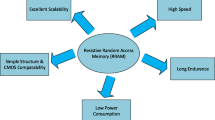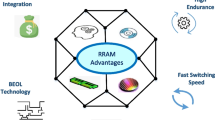Abstract
With the increasing popularity of wearable, implantable, and Internet of Things devices, energy-harvesting nonvolatile processors (NVPs) have become promising alternative platforms due to their durability when running on an intermittent power supply. To address the problem of an intermittent power supply, backing up of volatile data into a nonvolatile cache has been proposed to avoid the frequent need to restart the program from the beginning. However, the penalties incurred by frequent backup and recovery operations significantly degrade the system performance and waste considerable energy resources. Moreover, the increasing amounts of data to be processed pose critical challenges in energy-harvesting NVP platforms with tight energy and latency budgets. To further improve the performance of NVPs, this article adopts a retention state that can enable a system to retain data in a volatile cache to wait for power recovery instead of backing up data immediately. Based on the retention time, we propose a performance-aware cache management scheme and a pre-backup method to improve the system performance and energy utilization while guaranteeing successful backup. The pre-backup method is also optimized by retaining data in a volatile cache when receiving a high voltage warning. In particular, the nonvolatile memory (NVM) compression technique is introduced to achieve the goal of minimizing power failures and maximizing system performance. Moreover, the security problems in the sleep state are discussed with regard to the NVM compression technique to guarantee the NVP’s security. We evaluate the performance and energy consumption of our proposed algorithms in comparison with the dual-threshold scheme. The experimental results show that compared with the dual-threshold scheme, the proposed algorithms together can achieve a 52.6% energy reduction and a 13.72% performance improvement on average.







Similar content being viewed by others
References
Embench: a modern embedded benchmark suite: [online]. https://lists.librecores.org/listinfo/embench
Mibench: [online]. http://www.eecs.umich.edu/mibench/
Measurement and instrumentation data center (MIDC) [online] (2020). http://www.nrel.gov/midc/
Albaseer A, Abdallah MM, Al-Fuqaha A, Erbad A (2021) Fine-grained data selection for improved energy efficiency of federated edge learning, Hamad Bin Khlifa University. arXiv:2106.12561
Binkert N, Beckmann B, Black G, Reinhardt SK, Saidi A, Basu A, Hestness J, Hower DR, Krishna T, Sardashti S et al (2011) The gem5 simulator. ACM SIGARCH Comput Arch News 39(2):1–7
Cronin P, Yang C, Zhou D, Qiu K, Shi X, Liu Y (2017) ‘The danger of sleeping’, an exploration of security in non-volatile processors. In: 2017 Asian Hardware Oriented Security and Trust Symposium (AsianHOST) 2017, pp 121–126
Fan W, Zhang Y, Song W, Zhao M, Shen Z, Jia Z (2020) Q-learning based backup for energy harvesting powered embedded systems. In: 2020 design, automation and test in Europe conference and exhibition (DATE). IEEE, pp 1247–1252
Habibzadeh M, Hassanalieragh M, Ishikawa A, Soyata T, Sharma G (2017) Hybrid solar-wind energy harvesting for embedded applications: supercapacitor-based system architectures and design tradeoffs. IEEE Circuits Syst Mag 17(4):29–63
Jalili M, Sarbazi-Azad H (2016) Endurance-aware security enhancement in non-volatile memories using compression and selective encryption. IEEE Trans Comput 66(7):1132–1144
Jog A, Mishra AK, Xu C, Xie Y, Narayanan V, Iyer R, Das CR (2012) Cache revive: architecting volatile STT-RAM caches for enhanced performance in CMPS. In: DAC Design Automation Conference 2012. IEEE, pp 243–252
Li J, Liu Y, Li H, Yuan Z, Fu C, Yue J, Feng X, Xue CJ, Hu J, Yang H (2018) Path: performance-aware task scheduling for energy-harvesting nonvolatile processors. IEEE Trans Very Large Scale Integr Syst 26(9):1671–1684
Li Q, Zhao M, Hu J, Liu Y, He Y, Xue CJ (2015) Compiler directed automatic stack trimming for efficient non-volatile processors. In: 2015 52nd ACM/EDAC/IEEE Design Automation Conference (DAC). IEEE, pp 1–6
Li X, Ma K, George S, Khwa W-S, Sampson J, Gupta S, Liu Y, Chang M-F, Datta S, Narayanan V (2017) Design of nonvolatile SRAM with ferroelectric FETs for energy-efficient backup and restore. IEEE Trans Electron Dev 64(7):3037–3040
Liang X, Canal R, Wei G-Y, Brooks D (2007) Process variation tolerant 3t1d-based cache architectures. In: 40th Annual IEEE/ACM International Symposium on Microarchitecture (MICRO 2007). IEEE, pp 15–26
Liu J, Jaiyen B, Kim Y, Wilkerson C, Mutlu O (2013) An experimental study of data retention behavior in modern dram devices: Implications for retention time profiling mechanisms. ACM SIGARCH Comput Arch News 41(3):60–71
Liu Y, Yue J, Li H, Zhao Q, Zhao M, Xue CJ, Sun G, Chang M-F, Yang H (2017) Data backup optimization for nonvolatile SRAM in energy harvesting sensor nodes. IEEE Trans Comput Aided Des Integr Circuits Syst 36(10):1660–1673
Song W, Zhou Y, Zhao M, Ju L, Xue CJ, Jia Z (2018) EMC: energy-aware morphable cache design for non-volatile processors. IEEE Trans Comput 68(4):498–509
Sudevalayam S, Kulkarni P (2010) Energy harvesting sensor nodes: survey and implications. IEEE Commun Surv Tutor 13(3):443–461
Wang Y, Jia H, Liu Y, Xue CJ, Yang H, et al (2014) Register allocation for hybrid register architecture in nonvolatile processors. In: 2014 IEEE International Symposium on Circuits and Systems (ISCAS). IEEE, pp 1050–1053
Wang Y, Liu J, Hu J (2020) Communication-aware task scheduling for energy-harvesting nonvolatile processors. IEEE Transactions on Very Large Scale Integration (VLSI) Systems, 2020, 28(8):1796-1806
Zhao M, Fu C, Li Z, Li Q, Xie M, Liu Y, Hu J, Jia Z, Xue CJ (2017) Stack-size sensitive on-chip memory backup for self-powered nonvolatile processors. IEEE Trans Comput Aided Des Integr Circuits Syst 36(11):1804–1816
Zhao M, Li Q, Xie M, Liu Y, Hu J, Xue CJ (2015) Software assisted non-volatile register reduction for energy harvesting based cyber-physical system. In: 2015 Design, Automation and Test in Europe Conference and Exhibition (DATE). IEEE, pp 567–572
Zhao M, Qiu K, Xie Y, Hu J, Xue CJ (2016) Redesigning software and systems for non-volatile processors on self-powered devices. In: 2016 IFIP/IEEE International Conference on Very Large Scale Integration (VLSI-SoC). IEEE, pp 1–6
Zhou D, Qiu K, Xu Y, Shi X, Liu Y (2018) A dual-threshold scheme along with security reinforcement for energy efficient nonvolatile processors. In: 2018 IEEE Computer Society Annual Symposium on VLSI (ISVLSI). IEEE, pp 70–75
Zhou Y, Zhao M, Ju L, Xue CJ, Li X, Jia Z (2017) Energy-aware morphable cache management for self-powered non-volatile processors. In: 2017 IEEE 23rd International Conference on Embedded and Real-Time Computing Systems and Applications (RTCSA). IEEE, pp 1–7
Zhu M, Pham H (2020) An empirical study of factor identification in smart health-monitoring wearable device. IEEE Trans Comput Soc Syst 7(2):404–416
Acknowledgements
This research was supported by the National Youth Program of the National Natural Science Foundation of China (Grant No. 61702123), and Science and Technology Program of Guangzhou, China (Grant No. 201804010461).
Author information
Authors and Affiliations
Corresponding author
Additional information
Publisher's Note
Springer Nature remains neutral with regard to jurisdictional claims in published maps and institutional affiliations.
Rights and permissions
About this article
Cite this article
Wang, Y., Li, K., Deng, X. et al. Performance-aware cache management for energy-harvesting nonvolatile processors. J Supercomput 78, 3425–3447 (2022). https://doi.org/10.1007/s11227-021-03999-8
Accepted:
Published:
Issue Date:
DOI: https://doi.org/10.1007/s11227-021-03999-8




